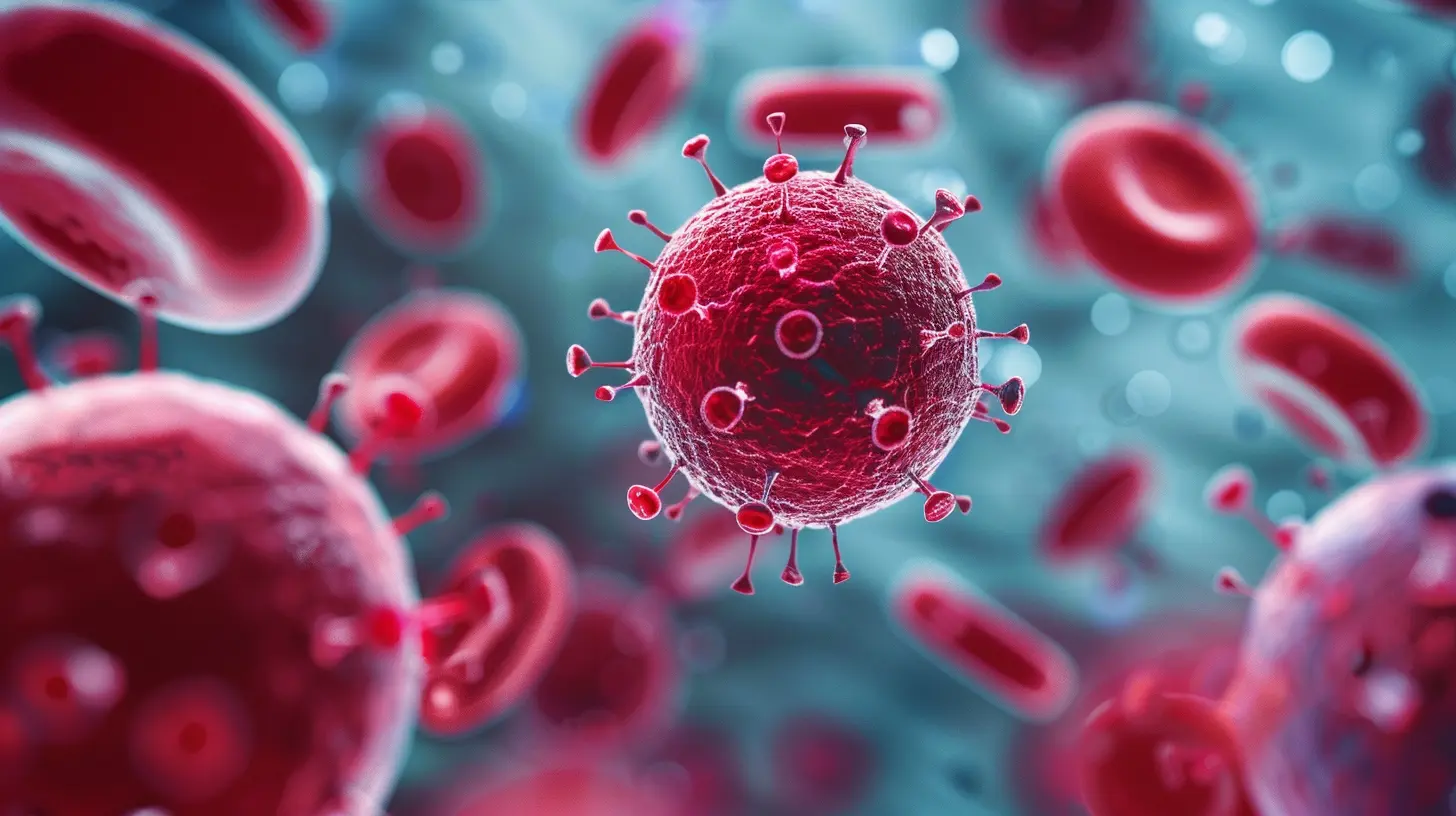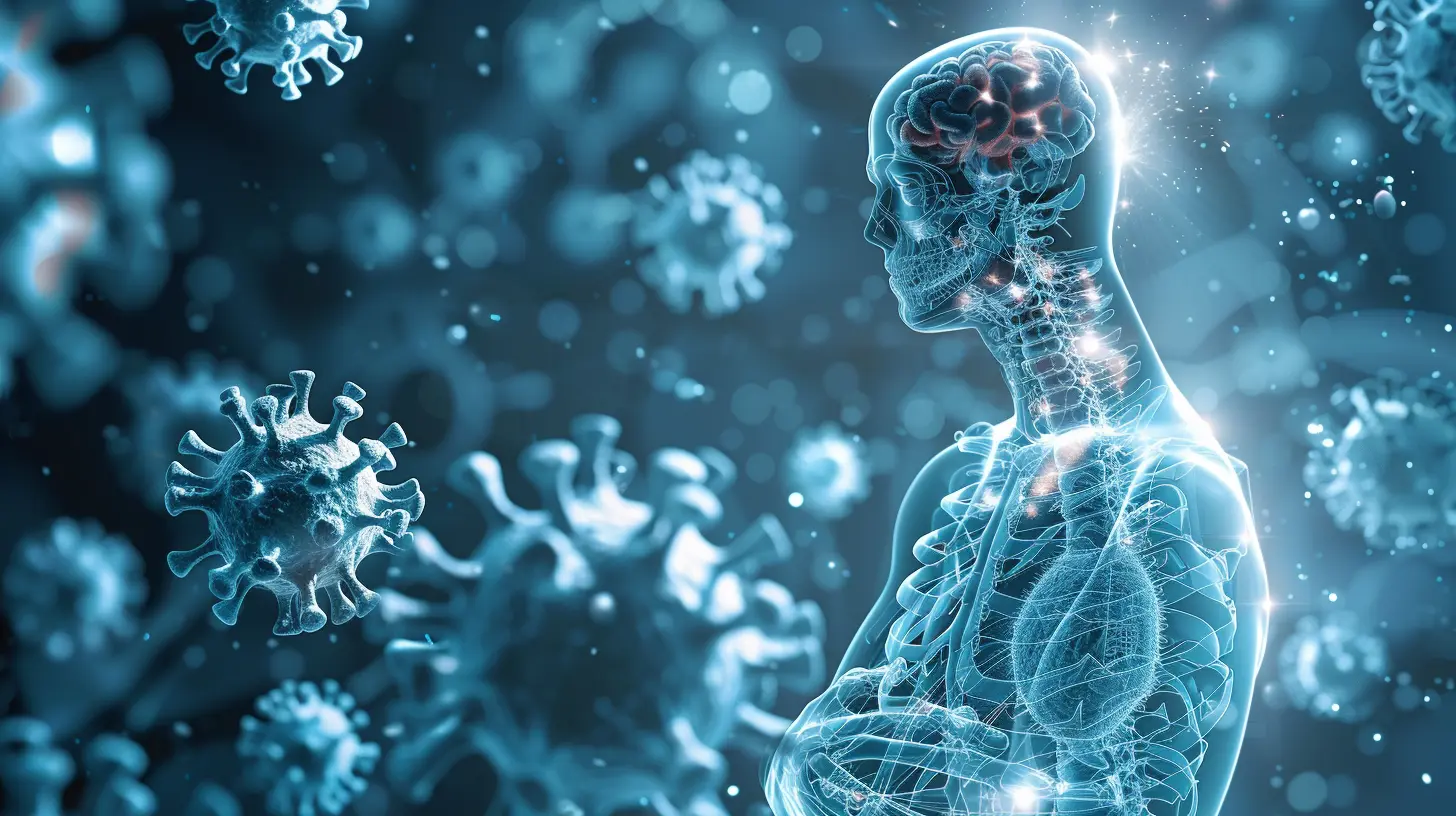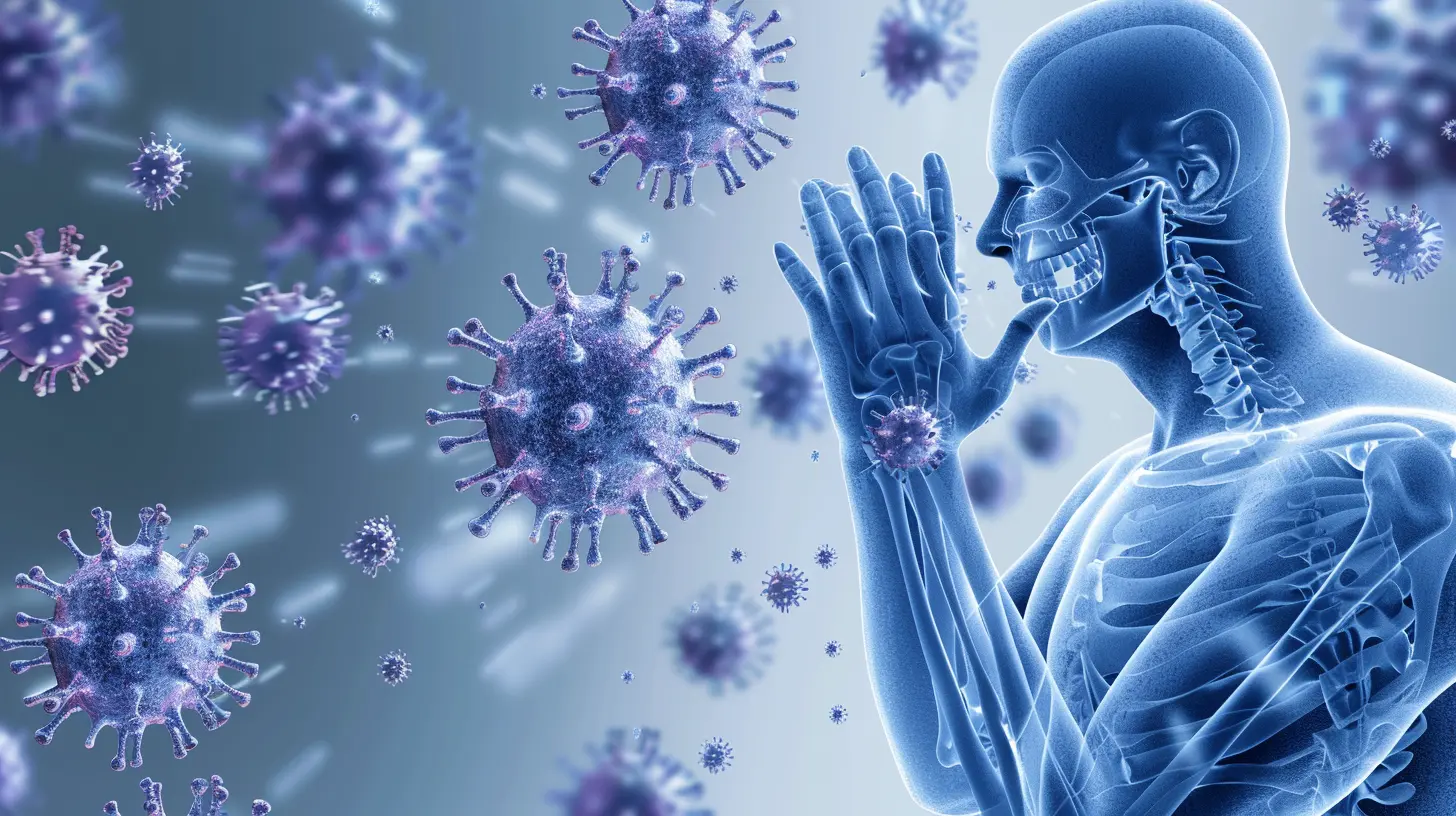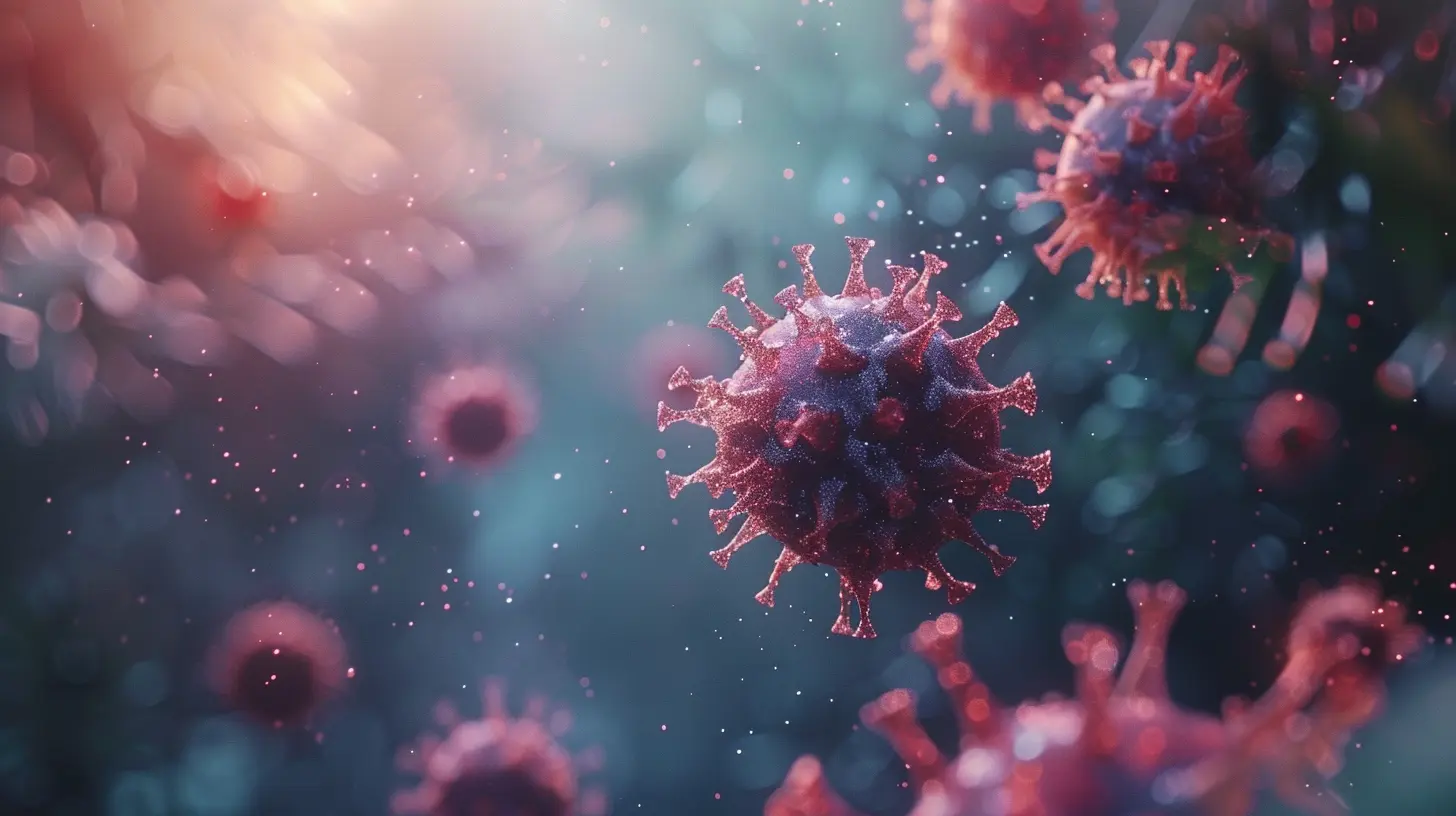The Immune System’s Role in Fighting Cancer
17 September 2025
Cancer. The mere word sends chills down our spines. It’s a scary, unpredictable disease that claims millions of lives every year. But what if I told you that your body has a built-in defense system that’s constantly working to fight off cancer cells, even before you realize they exist?
Yep, that’s right—your immune system plays a major role in keeping cancer at bay. This incredible network of cells and proteins is like an elite security team, always on patrol, looking for anything that doesn’t belong in your body. And when it finds something suspicious—like a rogue cancer cell—it jumps into action.
But how exactly does the immune system fight cancer? And why do some cancer cells still manage to slip through the cracks? Let’s dive deep into this fascinating battle happening inside your body every single day.

How the Immune System Detects and Attacks Cancer
Your immune system isn’t just there to fight off colds and infections—it’s also trained to recognize and eliminate abnormal cells, including the ones that could turn into cancer.1. Immune Surveillance: The Body’s Watchdog
Think of your immune system as a 24/7 surveillance team. Specialized immune cells, such as T cells and natural killer (NK) cells, constantly scan your body for anything out of the ordinary. When they come across a cell that looks suspicious—maybe it has genetic mutations or is behaving oddly—they tag it as a threat.2. Attack Mode: Destroying the Intruders
Once a cancer cell is identified, the immune system doesn’t waste any time. Cells like cytotoxic T cells (the immune system’s assassins) swoop in and release toxic substances that poke holes in the cancer cells, causing them to self-destruct.Meanwhile, NK cells act like snipers, eliminating rogue cells before they can multiply and form tumors. It’s an ongoing battle, and most of the time, these immune warriors handle the job without you even knowing it.
3. Backup Support: The Role of Antibodies
B cells, another type of immune cell, produce antibodies that help mark cancer cells for destruction. They act like giant flashing neon signs, making it easier for T cells and NK cells to recognize and attack the bad guys.But here’s the catch: Cancer cells are sneaky. Some of them develop clever ways to evade the immune system, disguising themselves to avoid detection. That’s when things get tricky.

How Cancer Outsmarts the Immune System
Cancer cells aren’t just abnormal cells; they are master manipulators. They can fool the immune system in several ways:- Playing Hide and Seek – Some cancer cells camouflage themselves, making it hard for immune cells to recognize them.
- Sending False Signals – Cancer cells release substances that trick immune cells into thinking they’re harmless.
- Shutting Down the Attack – Some tumors create an environment that suppresses immune responses, preventing T cells from doing their job.
This is where modern medicine steps in. Scientists have developed immunotherapies—treatments that give the immune system a boost so it can outsmart cancer.

Immunotherapy: Using the Immune System to Beat Cancer
Immunotherapy is one of the most exciting advancements in cancer treatment. Instead of using chemotherapy to attack cancer directly, these treatments train and enhance the immune system, helping it recognize and destroy cancer cells more effectively.1. Checkpoint Inhibitors: Removing the Brakes
Cancer cells sometimes “hijack” the body’s natural immune checkpoints—built-in mechanisms that prevent the immune system from attacking healthy cells. Checkpoint inhibitors block these hijacked signals, allowing T cells to attack cancer more aggressively.2. CAR-T Cell Therapy: Supercharging the Immune Response
This therapy involves taking T cells from a patient’s blood, genetically modifying them to recognize cancer, and then reinfusing them back into the body. These engineered immune cells act like an army of specially trained soldiers, ready to hunt down and eliminate cancer cells.3. Cancer Vaccines: Training the Body to Fight Back
No, we’re not talking about the kind of vaccines you get for the flu. Cancer vaccines help the immune system recognize specific cancer-related proteins, making it easier to detect and destroy cancer cells.These treatments have shown incredible promise, especially for cancers like melanoma, lung cancer, and certain types of blood cancer. But they don’t work for everyone—yet. Researchers are constantly working to improve immunotherapy and make it more effective for a wider range of cancers.

What You Can Do to Support Your Immune System
While immunotherapy is a game-changer, your everyday habits also play a huge role in keeping your immune system strong and ready to fight off cancer. Here’s what you can do:- Eat a Nutrient-Rich Diet – Load up on antioxidant-rich foods like berries, leafy greens, and nuts to reduce inflammation and support cell health.
- Exercise Regularly – Physical activity can boost immune function and lower the risk of cancer.
- Get Enough Sleep – Your immune system repairs itself while you sleep, so don’t skimp on rest.
- Manage Stress – Chronic stress weakens immunity, so find healthy ways to unwind, like meditation or spending time in nature.
- Avoid Smoking and Excess Alcohol – These habits can damage immune cells and increase cancer risk.
The Future of Cancer and Immunotherapy
The idea of using the immune system to fight cancer isn’t new, but recent advancements have taken it to a whole new level. Researchers are now exploring personalized immunotherapy, where treatments are tailored to each patient’s unique immune system and tumor type.We’re also seeing breakthroughs in cancer prevention vaccines and combination therapies that use multiple approaches to attack cancer from all angles.
Does this mean we’re close to a cure? Not quite. But we’re certainly making progress. The more we understand how the immune system interacts with cancer, the closer we get to turning cancer into a manageable, even preventable, disease.
Final Thoughts
The immune system is our body’s unsung hero, constantly fighting battles we’ll never even know about. It has an incredible ability to recognize and destroy cancer cells, but sometimes the enemy is just too crafty.That’s where science steps in, offering powerful tools like immunotherapy to give the immune system the upper hand. And with continued research, who knows? Maybe one day, cancer will be nothing more than a distant memory.
Until then, take care of your body, support your immune system, and stay informed about the incredible ways science is pushing the boundaries of cancer treatment.
all images in this post were generated using AI tools
Category:
Immune SystemAuthor:

Laurie Barlow
Discussion
rate this article
1 comments
Zinna McCarron
The article effectively highlights how a robust immune system can identify and destroy cancer cells. It underscores the importance of immunotherapy and lifestyle choices in enhancing immune responses to combat cancer more effectively.
October 8, 2025 at 2:35 AM

Laurie Barlow
Thank you for your insightful comment! I'm glad you found the article informative about the immune system's crucial role and the value of immunotherapy and lifestyle in cancer treatment.


